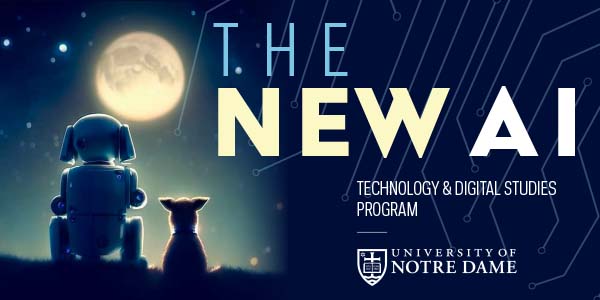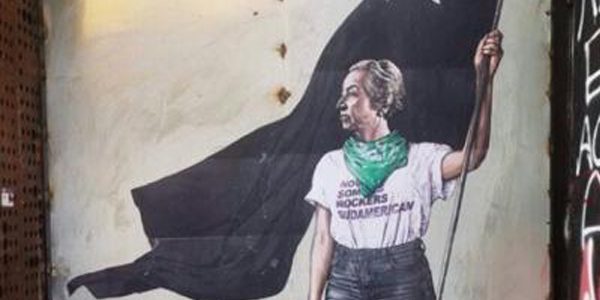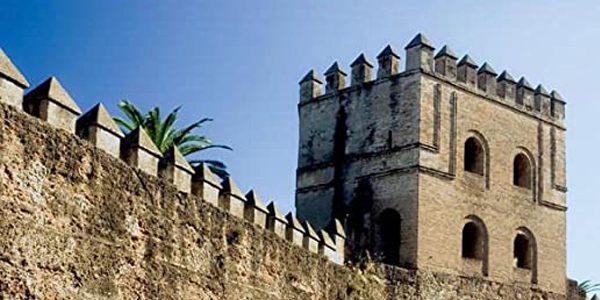Beyond the Border: Creating action for safe, dignified migration
Wednesday, October 13, 2021 1:00 pm EST
Subscribe to the ThinkND podcast on Apple, Spotify, or Google.
Featured Speakers:
- Michael Camilleri, Senior Advisor to the USAID Administrator and Executive Director of USAID’s Northern Triangle Task Force, United States Agency for International Development (USAID)
- Dr. Juan José Daboub, President, ThinkHUGE
- Rev. Daniel Groody, C.S.C, Vice President and Associate Provost, Associate Professor of Theology and Global Affairs, University of Notre Dame
- Taiyyeba Safri Skomra, Partner & Certified Specialist, Stone Grzegorek & Gonzalez LLP
Tom Hare, Senior Technical Associate at the Pulte Institute for Global Development, opened the program and welcomed attendees to the third and final week of the Beyond the Border program.
Hare began by recapping the past two sessions. The first week focused on the realities in the region from the viewpoint of researchers looking at challenges such as unemployment, gender-based violence, and other drivers of migration. Last week, Hare invited two friends and co-authors from Central America to reflect more on the personal side of things and how they view development in the region as Central Americans. This third and final event of the series explored what the United States’ businesses, the Church, and each of us as global citizens can do to create safe, dignified paths for migration. He explained that the program was created instinctively as researchers who hope to inform and provide evidence for action; first, presented the evidence, then contextualized that evidence with first hand experience, and now will be discussing how that evidence can be used to inform action from various angles. He proceeded to introduce the event’s speakers:
- Micheal Camilleri serves as senior advisor to the U.S. Agency for International Development Administrator and is the executive director of USAID’s Northern Triangle Task Force with a focus on Central America. Most recently, he was the director of the Peter D. Bell Rule of Law Program at the Inter-American Dialogue. Prior to that, he served in the Obama-Biden Administration as the Western Hemisphere advisor on the Secretary of State’s Policy Planning Staff and as director for Andean Affairs at the National Security Council. He holds a BA in history from Notre Dame and a J.D. from Harvard Law School.
- Taiyyeba Safri Skomra is a partner at Stone Grzegorek & Gonzalez, LLP. She is a specialist in immigration and nationality law through the State Bar of California Board of Legal Specializations Science. She has a great depth of experience in family immigration, immigration litigation, and the analysis of immigration consequences of criminal activity. She directs much of the firm’s pro bono work and earned her J.D. from the University of Washington.
- Rev. Daniel Groody, C.S.C is an Associate Professor of Theology and Global Affairs and serves as Vice President and Associate Provost for Undergraduate Affairs. He is also a fellow and trustee of the University of Notre Dame. Internationally recognized as an expert on migration and refugee issues, he has including authoring or editings seven of several books, serving as executive producer on multiple films and work with the US congress, the Us conference of catholic bishops, the world council churches, the vatican, and the united nations on issues of theology, globalization, migration, and refugees. Earned Bachelor’s from Notre Dame, Master of divinity and ** essetiante? In sacred theology from the Jesuit school of theology and his doctorate of theology from the graduate theological union
- Dr. Juan Jose Daboub is a founder of ThinkHUGE, a direct investment council for the US and Central America; founding CEO of the global adaptation institute, co-chair of the World Economic Forum’s Global Agenda Council on Climate Change and the vice chairman of the Dorado Group. Previously, he was a managing director of the World Bank, where he oversaw operations in Africa, the Middle East, East Asia, and Latin America and was responsible for the oversight of the human development and sustainable development networks. Prior, he served concurrently as El Salvador’s Minister of Finance and as Chief of Staff to the President, held high government positions in El Salvador for an additional 12 years, working for 3 different administrations without belonging to any political party. Before his work in the public sector, Dr. Daboub led the expansion of his family-owned businesses and worked with non-profit organizations on public policies to promote liberty, stability, and growth throughout Latin America. He holds a PhD in industrial engineering from North Carolina State University.
Hare began the conversation by asking Camilleri about how he started working in Central America specifically. He explained how a project on liberation theology back in high school led him down an intellectual journey that brought him to Notre Dame, spending time in Central America during law school, and going to Guatemala on a fellowship to work with human rights organizations. His career began on the ground living with civil society groups and has now led him to the opportunity to serve USAID and the Biden administration. Hare’s follow-up questions regarding this current work: “What is the U.S. government currently doing in Central America? Where do you see it moving in the next couple of years and how has that evolved the past few years?” Camilleri proceeded to explain the administration’s commitment to building a safe and orderly humane immigration system and understanding the need to be focused on the root causes. This is seen in the commitment to invest $4 billion over 4 years. He explained the framework of implementation, titled The Root Causes Strategy, and how it aimed to promote inclusive economic growth, strengthen democratic governance, combat corruption, defend human rights, improve citizen security, and combat gender-based violence by addressing both irregular and chronic migration causes. He emphasized the need for domestic will and commitment by government partners in the region to ensure success.
Tom transitioned the conversation to the legal processes involved with bringing people who have reached the border or are seeking asylum or refugee status to the U.S. with a question for Skroma about what led her to her career track. She explained that she was a daughter of immigrants and got to see the limitations of being without status. Hare asked Skroma to walk us through the asylum process and how it changed and evolved over time as well as what Title 42 is. Skroma explained that there are different paths and categorized them into two: people who arrive with status and must apply for asylum and those that arrive at the border. She emphasized that the process of applying is difficult, and has become significantly slower over time. She continued to explain that the Title 42 process is another method of keeping people out on the grounds of public health concerns and that it’s being continued by the current administration. She emphasized that this is shutting out entire families, resulting in repeated attempts to enter by people who are asserting their right to seek asylum, which consequently raises the cost of border security.
Hare turned the conversation to Groody to get his perspective, as someone who has examined migration refugee issues globally from a theological perspective, on what his path was to becoming involved in the topic and asked what are the roots of this link between theology and migration. Groody explained that he was an exchange student in high school and lived in Uruguay and Argentina with a family that had a son who disappeared during the war; this experience planted a seed. Later on, he went back to Chile and Peru as a Seminarian and when he was ordained he worked at the border of California and Mexico in pastoral ministry. This experience catalyzed an interest in the issue of spirituality and in viewing migration itself as a theological concept. He later returned to Notre Dame to research these dimensions, which led him to articulate a contextual theology of migration. He proceeded to tell the story of Pope Francis, a chalice, and his powerful visit to the island of Lampedusa. Groody explained that his work is to reshape the narrative of migration, moving it from a place of othering migrants, and looking towards a journey of communion and union.
Hare mentioned that this is something that is recognized at the Keough School, the importance of recognizing the dignity of each individual and each person and to recognize their humanness, no matter what their story. He continued and asked Groody about what the Church has been doing and is currently doing. He explained how catholic charities are at the frontlines of the work, while the Bishops conference is advocating behind the scenes. The Church is also helping in the education and research of migration. If you’d take just the work of the Church alone, it is the largest resettler of refugees in the world, and there is still so much work to do.
Hare turns the conversation to Daboub and the topic of public-private partnerships, a space that has seen a growing movement in this space. Hare asked about where this idea of an alliance of private sector actors in the U.S. and Central America came from and how it all came to be. He began by emphasizing the importance of understanding the roots of the problem. He emphasized two very important components that need to be addressed as part of it: insecurity, which includes the issue of transnational criminal organizations, and the capacity for people to take their destiny into their own hands. In regards to the latter, he explained that a decent job is what does this, and uses his own family history as an example. The families in these countries have suffered, but have built resilience in spite of who is government or the policies in place, have been able to survive, keep moving forward, and create opportunities. He believes that the role of the private sector, particularly financing and resourcing, is what is missing. He also highlighted another important factor, the tensions between the U.S. and China that have provided the right scenario for U.S. companies based in China to move back to this hemisphere. This nearshoring revolution brings the potential for the creation of millions of jobs, impacting millions of families.
The session moved on with questions from the attendees and short responses from those they were directed at:
- What can the people working in the private sector do? How can they get involved in ThinkHUGE? (Dr. Juan Jose Daboub)
- How are the grassroots and the governments working together, being noticed by each other, in the region, by your experience, and maybe how could they do more work together between civil society and government? (Michael Camilleri)
- Are there specific or general protections for someone who suffered gender-based violence? (Taiyyeba Safri Skomra)
The session ended with a general question for reflection, aimed towards Fr. Groody. As we leave here with new information and what we’re learning about migration, no matter what background we are from, is there any one thing that you would challenge us with? He comments that God came as a migrant to our world and that this life is not about us and them, but about moving from otherness to oneness and alienation to communion.
- There is a need for domestic political will. Governance is central to development, as emphasized by the current administration’s approach. Everything becomes more difficult, if not impossible in an environment of endemic corruption and state capture. They have taken some actions in the three countries to make clear what the expectations are. The administration wants to be met by government partners in the region that share a commitment to rule of law, accountability, and transparency.
- There are different paths taken to gain status. Some people arrive here legally with status and are required within their first year to apply for asylum, and show why they have suffered past persecution or if they have a well-founded fear of future persecution. Separately, people who are arriving at the border are going through a variety of processes; which could include the Migrant Protection Protocol and Title 42.
- There is a lot of work to be done in reshaping the narrative of migration; a move from a place of othering migrants and looking towards a journey of communion and union.
- People want jobs. In the context of the famous “Give a Man a Fish” proverb, people need the freedom to be able to fish and the market to fish. This is what will allow them to move forward and have the opportunity to educate their children, have better health, etc.
- Having one person in the family with a source of steady income, it impacts all the others. When a country reached $8000 per capita income, immigration tends to stop and even inverses.
- “It’s abundantly clear to us that most of these people, all things being equal, would not want to abandon their countries and their families and their communities. They are doing so in most cases out of a sense of desperation, whether that’s economic desperation or insecurity; or simply a sense that the governments that rule their countries are so self-interested and corrupt that ultimately they don’t have any hope things are going to get better.” (Michael Camilleri 15:00)
- “Title 42 process is another method of keeping people out and unable to apply for asylum and unfortunately this administration is continuing that… that process of keeping people out on the grounds of public health concerns, whether or not they show any signs of COVID infection or anything, is continuing.” (Taiyyeba Safri Skomra 29:04)
- “And so one of the questions that I would take up as a theologian would be to say ‘what does it mean to use a chalice made from the driftwood of a refugee boat?’ and that’s really a question about the narrative of migration in light of the narrative of faith.” (Rev. Daniel Groody, C.S.C 35:13)
- “What is really at stake is coming up with a new narrative about migration and really challenging some of these dualizing narratives of citizen, alien, native, foreigner, legal, illegal, all of which break down at some point when we look at them through the lens of human dignity, human rights, and trying to build a more just and humane society” (Rev. Daniel Groody, C.S.C 38:33)
- “Two things that need to be addressed as part of the root causes: insecurity and the capacity for people to actually take destiny into own hands and that can only be provided through a job, a decent job that gives people not only a means to choose what they want to do but also the opportunity of educating their children and having better health, etc.” (Dr. Juan Jose Daboub 41:20)
Related Content
The Future of Work
November 30, 2023 marks one year into the ChatGPT era and one of the most pressing concerns we hear from all quarters is: How will this affect the future of work and what the...
View EventDisidencia sexual y de género en Gabriela Mistral / Gender and Sexual Dissidence in Gabriela Mistral
Offered in Spanish and English with simultaneous interpretation. Claudia Cabello-HuttAssociate Professor of SpanishDirector of Graduate StudiesThe University of North Carolina at...
View EventBook Launch – Republics of Difference: Religious and Racial Self-Governance in the Spanish Atlantic World
You are invited to the launch of the latest book by Kellogg Faculty Fellow Karen Graubart, associate professor of history, on the ways subordinate groups in the Spanish empire,...
View Event


